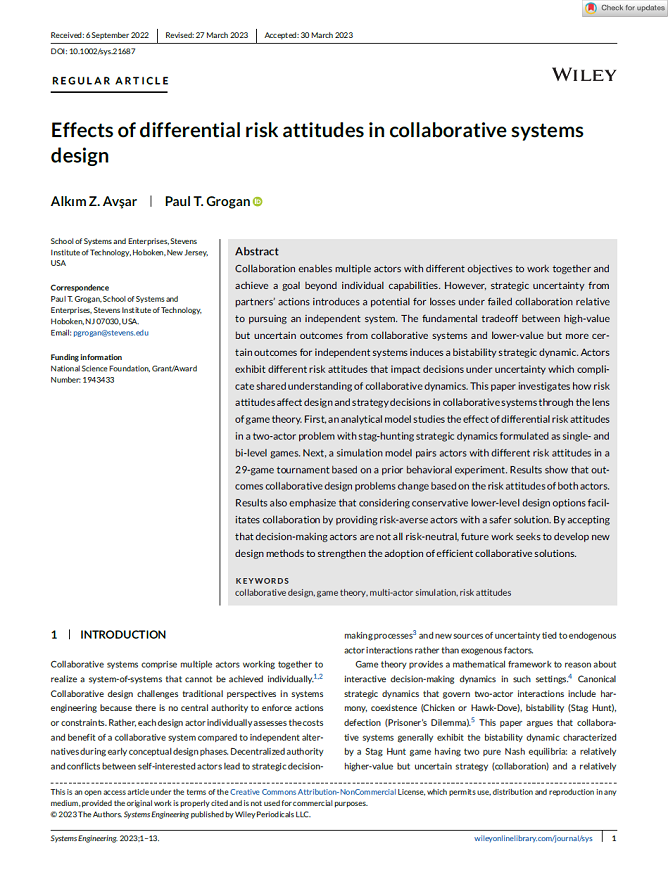A new open access research article authored by Alkim Avsar and Paul Grogan appears in Systems Engineering today.
Effects of Differential Risk Attitudes in Collaborative Systems Design
Collaboration enables multiple actors with different objectives to work together and achieve a goal beyond individual capabilities. However, strategic uncertainty from partners’ actions introduces a potential for losses under failed collaboration relative to pursuing an independent system. The fundamental tradeoff between high-value but uncertain outcomes from collaborative systems and lower-value but more certain outcomes for independent systems induces a bistability strategic dynamic. Actors exhibit different risk attitudes that impact decisions under uncertainty which complicate shared understanding of collaborative dynamics. This paper investigates how risk attitudes affect design and strategy decisions in collaborative systems through the lens of game theory. First, an analytical model studies the effect of differential risk attitudes in a two-actor problem with stag-hunting strategic dynamics formulated as single- and bi-level games. Next, a simulation model pairs actors with different risk attitudes in a 29-game tournament based on a prior behavioral experiment. Results show that outcomes collaborative design problems change based on the risk attitudes of both actors. Results also emphasize that considering conservative lower-level design options facilitates collaboration by providing risk-averse actors with a safer solution. By accepting that decision-making actors are not all risk-neutral, future work seeks to develop new design methods to strengthen the adoption of efficient collaborative solutions.

